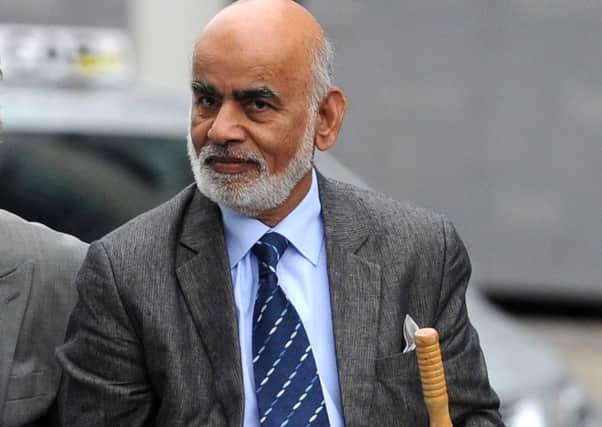Lord Rana: The EU and Commonwealth are not mutually exclusive, as Leave implied


Instead of providing clarity, Brexit’s victory by a narrow margin of 3.8%, has cast uncertainty upon us. Instead providing political vision, I wake up today to a divided and wounded Britain disappointed and shocked.
It did not have to be this way. Such a referendum could have been a shining example of our liberal democracy, in which a balanced and educated debate informed the electorate in their decision. Instead it has been characterised by a noxious air of far right populism disseminating misinformation; a bitterly divided campaign as much as about immigration as about the global economy.
Advertisement
Hide AdAdvertisement
Hide AdThere was a feeling a week before the referendum that sense might prevail as Jo Cox, an inspiring and young humanitarian politician, was tragically killed by an extremist from the far-right. Against this, many stood aghast as Nigel Farage, supporting the campaign to Leave, unveiled a poster demonising refugees.
However, such a mood did not last, Michael Gove noted “the British people are sick of experts” and he has been vindicated. Awaking to a stock market plunge and the precipitous decline in the pound many are already questioning their vote, frantically asking what the implications are for jobs and the economy – questions Leave consistently failed to answer during the campaign. As the pound is at its lowest level in 30 years, voters now face an economic shock that many economists – labelled as “scaremongers” during the campaign - warn will only worsen before it improves.
Already the Brexiteers have revealed their campaign pledge of funding the NHS with an extra £350 million a week was no more than hot air as 15 years of British contributions to the EU vanished overnight.
The election result revealed a nation deeply divided by demographics, with the majority of the younger generation voting to remain against the older generation, by geography, with London and Scotland voting for remain against rural England, and a large contingent of voters who feel entirely disconnected with the mainstream politics.
Advertisement
Hide AdAdvertisement
Hide AdNicola Sturgeon has made no secret over the possibility of a second Scottish Referendum, defeat this time would be highly unlikely. But the breakup of the UK is not restricted solely to Scotland. the EU is explicitly mentioned in all devolved settlements including Wales and Northern Ireland.
The result is particularly painful for Northern Ireland, where support for the EU was considerably higher than the rest of the UK. Northern Ireland shares the only land border with the EU and the freedom of movement that has helped to assure peace and prosperity. Throwing up a wall threatens to divide communities and tear up the fragile peace we have sought so hard to build.
It did not have to be this way, although I voted passionately to Remain, there were merits to both sides of the argument. As an Indian, rejuvenating ties with the Commonwealth and promoting increased immigration and revitalised links with India was promising. However, the EU and the Commonwealth are not mutually exclusive, and this was not the positive case put forward by Leave, who combined fear with dog-whistle racism.
Now that the die has been cast, it is more important than for us to make sure that these venomous arguments do not poison Britain’s future outlook towards the world. Divided, we must now work to come back together, to heal wounds between the different nations that make up Britain, the gap between generations, cultures and rehabilitate those who appeared to vote Leave from sheer disillusionment.
Advertisement
Hide AdAdvertisement
Hide AdThis issue is far bigger than the referendum, and is manifested in the global rise of the far right populism in response to the problems of globalisation. It was large contingents of disenfranchised Labour voters that voted to Leave, using their vote to express their discontent.
I fear the referendum, as well as not placating their concerns, has now alienated more people than could have been imagined. Tony Blair broadly painted a bold image of a multicultural Britain, but failed to fill in the gaps as he was tarnished by the backlash to the Iraq War. He failed to bring the people along with his politics. If Tony Blair will be remembered this blunder, David Cameron will be remembered for his, of calling the EU Referendum. Yet both should be remembered for the failure to create a positive and progressive Britain, and now this task falls to all of us.